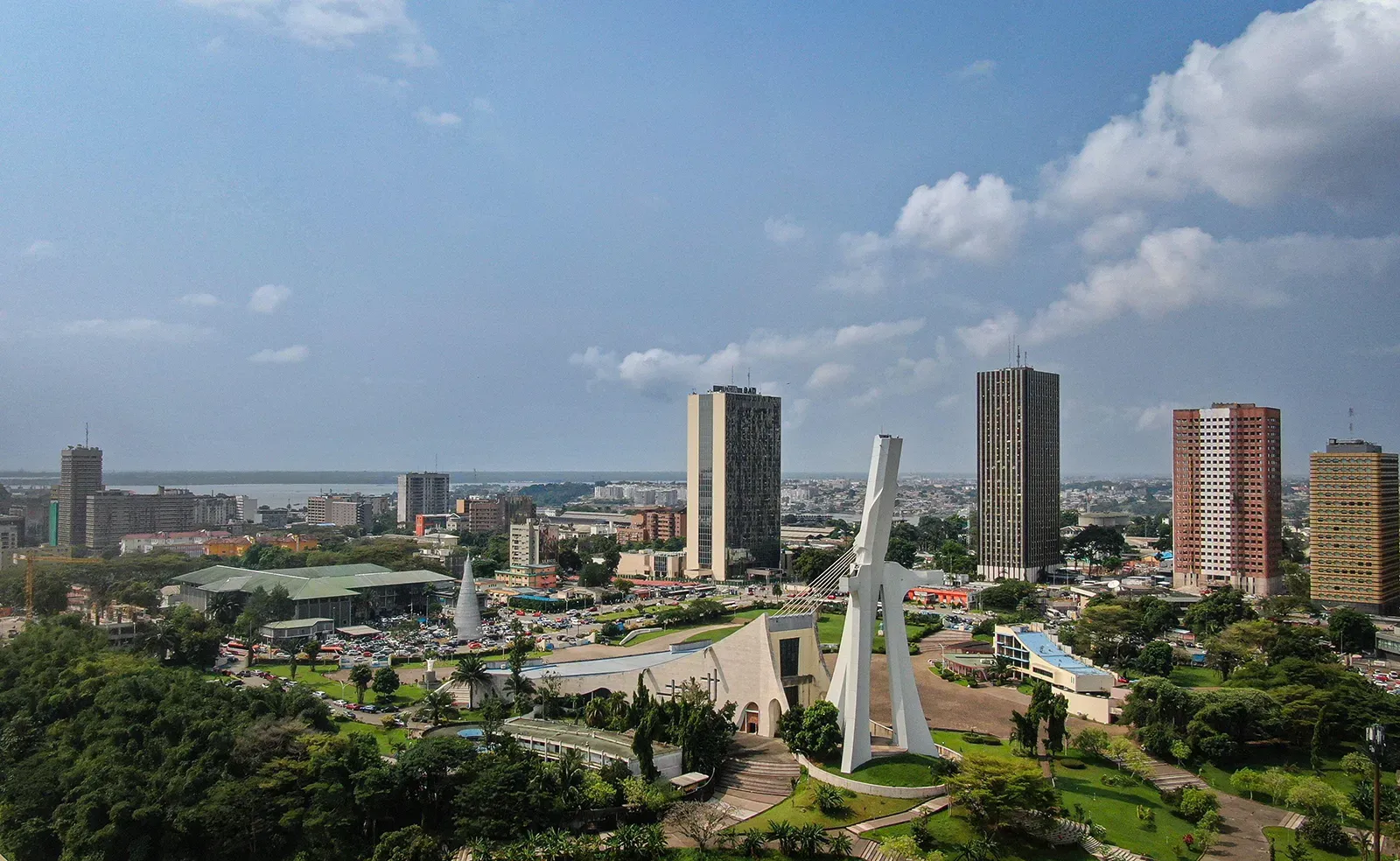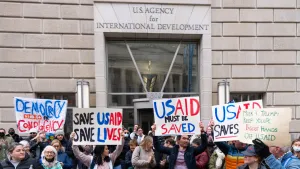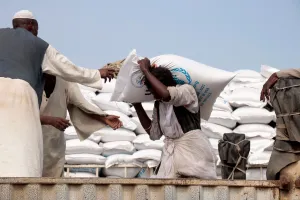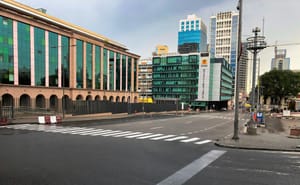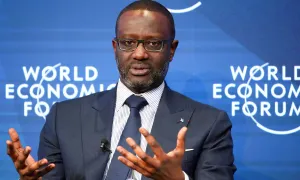As 2025 unfolds, West Africa grapples with persistent extremist threats, political uncertainty, and stalled economic reform. With the waning influence of Russian mercenaries and diminishing French presence, the spotlight now turns to whether regional actors can chart a homegrown solution to the spiraling insecurity.
The successors of the Wagner Group, now operating in Burkina Faso, Mali, and Niger, have faced consistent setbacks. Yet this does not mark a return of France, especially as Chad and Senegal have also asked Paris to withdraw its military presence. The question remains: Can the region forge a coordinated and independent security strategy?
One year ago, a confident Nigeria might have responded in the affirmative. But economic challenges triggered by President Bola Tinubu’s removal of fuel and currency subsidies have curbed enthusiasm. Even so, signs of progress are visible: Senegal’s leadership duo presents a model of people-focused governance, while Ghana's electorate has ousted the New Patriotic Party after eight years marked by rising corruption, suggesting a shift toward reform. Could Accra represent a glimmer of hope?
Côte d’Ivoire: Will Ouattara Seek Another Term?
Speculation continues around Ivorian President Alassane Ouattara’s potential candidacy in 2025. Since joking in August 2023 that a new bridge in Abidjan “was worth several more terms,” political circles have debated his intentions. Although he initially expressed a desire to step down, the ruling RHDP party passed a resolution in September backing him for a fourth term.
At 82, Ouattara remains a central figure in Ivorian politics, having presided since 2010 and secured a contentious third term in 2020. His potential rivals include former president Laurent Gbagbo (79), who confirmed his 2025 candidacy, and his ex-wife, Simone Gbagbo, who launched the MGC party in 2022 and declared her presidential bid in December.
Political analyst Jessica Moody argues that a new run by Ouattara is increasingly likely, driven by recent resource discoveries, strong approval ratings, and regional instability—particularly tensions with the Sahel and threats from Burkina Faso. Moody highlights his role in maintaining national stability and leading post-conflict reconciliation after the civil war era of 2002–2011.
Among the other contenders are former prime minister Pascal Affi N’Guessan, ex-trade minister Jean-Louis Billon, and PDCI opposition leader Tidjane Thiam. However, Vice President Tiémoko Koné remains a potential fallback option if Ouattara steps aside—though concerns persist about his lack of political magnetism.

Nigeria: The Uncertain Future of NNPC Reform
The long-awaited transformation of the Nigerian National Petroleum Company (NNPC) remains in limbo. Despite years of subsidies and public funding, Nigeria continues to import most of its refined petroleum due to dilapidated refineries and chronic issues like oil theft and vandalism. These challenges have weakened output, exacerbated inflation, and strained public finances.
In July, NNPC head Mele Kyari defended the company, asserting that investors are unwilling to fund crude production if transport to export terminals isn’t guaranteed. While domestic relief may come from the reopening of the Port Harcourt refinery and Aliko Dangote’s vast new plant, many fear these efforts are insufficient. Rumors of Kyari’s imminent departure raise further uncertainty.
The 2021 Petroleum Industry Act mandates NNPC's transition into a limited liability company open to shareholders. Though the Tinubu administration has shown boldness in subsidy and currency reforms, whether it can enact sweeping NNPC restructuring remains an open question.

Ghana: Economic Reboot After Political Reset
With the return of John Mahama to the presidency, Ghana enters a turbulent transition. Outgoing leader Nana Akufo-Addo departs after eight years marked by rising unemployment, a faltering industrial strategy, and limited anti-corruption success—just 14% of citizens rate the ruling NPP positively on that front.
Energy expert Bright Simons warns of a brewing financial crisis in Ghana’s power sector, which requires a complete overhaul. Economist Jerome Kumeh estimates the sector’s debts at $2 billion, severely limiting investment and growth potential.
Development analyst Austin Kwabena Brako-Powers describes Mahama’s inheritance as a “mess,” citing public debt, excessive taxation, and systemic corruption. Ghana also remains deeply entangled in an IMF bailout package—the largest debt to the institution in sub-Saharan Africa—with most of the associated hardships still ahead.
In October, Ghana secured a debt restructuring deal with international bondholders, taking a 37% haircut on $13 billion. Nonetheless, repayment obligations through 2028 remain steep, while domestic liabilities totaling $6.7 billion threaten to squeeze public spending.
Adding to Mahama’s burden is illegal gold mining, or "galamsey," which has flourished under Akufo-Addo despite his pledges to eradicate it. With 60% of freshwater sources polluted, decisive action is urgently needed.
Senegal: Faye’s Reform Agenda Begins
Newly elected Senegalese President Bassirou Diomaye Faye campaigned on a platform of rupture, vowing to dismantle entrenched patronage networks and renegotiate energy contracts to favor Senegal. Though his proposed exit from the CFA franc currency bloc has taken a back seat, his administration is moving forward with anti-corruption measures.
Faye’s PASTEF party secured a commanding majority in November’s legislative elections, giving him the political capital to pursue institutional reforms. His government has signaled a crackdown on former officials, including ex-president Macky Sall, who may face prosecution. Prime Minister Ousmane Sonko has pledged to lift immunity protections, marking a bold stance on accountability.
Liberia: Boakai’s Delicate Balancing Act
After defeating George Weah in a runoff election last November, President Joseph Boakai faces a growing challenge: distinguishing his governance from that of his predecessor. Weah, now largely silent and spending time abroad, lost public favor due to widespread graft under his administration.
Boakai’s critics, particularly from Weah’s CDC party, accuse him of failing to deliver real change. Political analyst Aaron Weah notes that Boakai’s rise was powered by frustration with Weah's corruption, but sees little visible shift so far.
While media coverage remains focused on Boakai’s early policies, Julius T. Jaesen II of Democracy Watch warns that Weah’s reentry into public debate could alter the political landscape, though he would need more than criticism to regain relevance.
Figures to Watch
- Zacch Adedeji: A close ally of President Tinubu and head of Nigeria’s tax agency, he is spearheading a top-to-bottom overhaul.
- Mati Diop: The Franco-Senegalese filmmaker’s latest project, “Dahomey,” continues her mission to deconstruct colonial narratives.
- Ibrahima Kassory Fofana: The former Guinean PM, jailed under the junta for corruption, may receive medical leave in France—but will he return?
- Allen Onyema: CEO of Air Peace, currently facing charges from U.S. authorities, denies wrongdoing while remaining in Nigeria.
